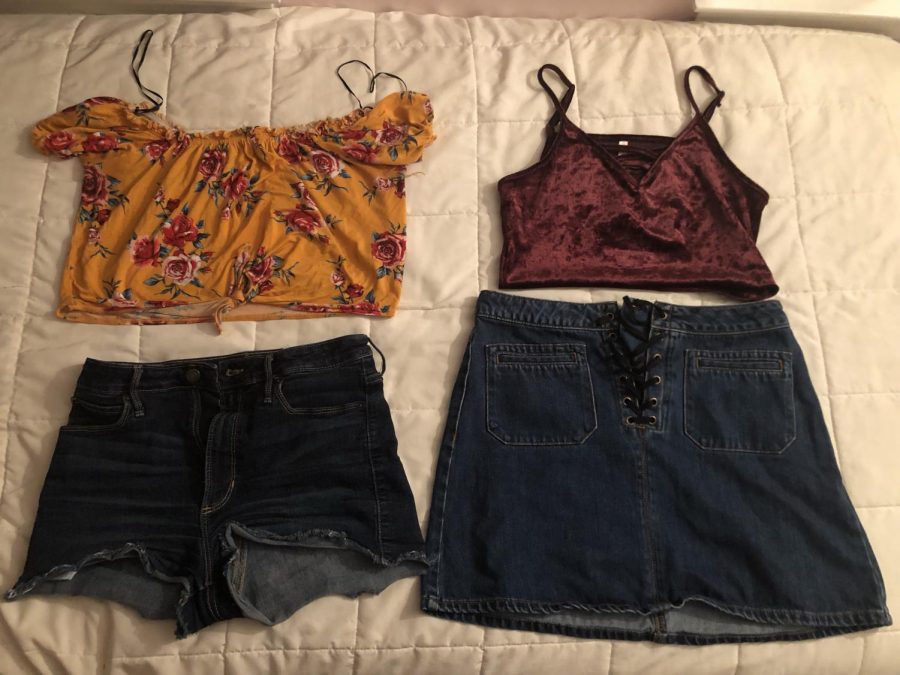The high price of cheap style
A fast fashion outfit (left) is displayed next to a thrifted, ecofriendly outfit (right)
April 11, 2019
All of us thoroughly enjoy the concept of getting a bang for our buck, seen no better than in the fashion industry where we can buy entire outfits for very low prices. These cheap clothes are wonderful for the average consumer. However, the money we proudly save represents darker realities that we, as consumers, must work to understand and prevent.
The unprecedented demand for clothing in the modern era has led to a vicious environment where businesses are forced to produce massive amounts of clothing at extraordinarily high speed and low prices in order to compete. While great for us, this new culture is at the expense of millions of underprivileged workers. The horrific stories — including constant threat and abuse, disturbingly low wages, and child labor — are repeatedly uncovered by organizations including the International Labor Organization and Department of Justice.
The masked price of our cheap clothes goes beyond labor exploitation; a couple of dollars saved also manifests into massive water and air pollution. Emissions from the fashion industry are projected to rise more than 60% by 2030 and dominate a fourth of the world’s carbon budget by 2050 under international agreements with the goal of preventing two-degree global warming.
Even today, the production of such clothing leads to toxins released into nearby waterways — more specifically, the Changing Markets Foundation recently found that severe contamination in the waters near factories in China, India, and Indonesia linked to a multitude of brands. Moreover, textile production in Bangladesh is threatening water sources to 18 million residents.
As each investigation reveals numerous factories in noncompliance with the law, companies are forced to investigate on a case-by-case basis, often shutting down factories while under the public eye. Yet, when new violations are uncovered so often, we must understand that this is not the fault of individual companies but instead the reality of fast fashion, latched onto two deep roots: corporate greed and modern-day consumer habits.
Changing the first requires a shift in mindset too great to be achieved in the near future. But we can work towards the second. We all can, and should, prioritize the lives of workers and the environment above our own desire for a cheap addition to our wardrobe.
Fortunately for us, this prioritization does not have to cost more. Making the clothes we currently have last longer and buying secondhand from thrift stores are two intuitively cheaper alternatives. For those who can afford to spend more: buy clothes made of organic or recycled materials.
The overstocked closet and low price tags are tempting; nonetheless, a closer look into the ramifications forces us to refuse the inclination. All of us who have the resources to live a more righteous lifestyle must take the necessary ethical steps.



